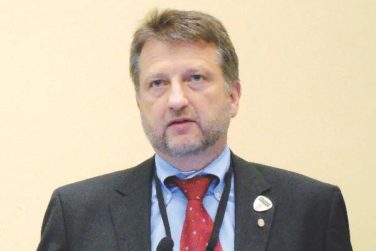Compliant patients are all alike; every noncompliant patient is obstinate in his or her own way. Because of this, persuading patients to make good choices is rarely easy and never universal.
At Kaiser Permanente, we have begun in earnest providing flu shots. Every department participates (even dermatology) with a goal of vaccinating every eligible patient. Most patients want their shot. When patients decline, it’s game on. A rare few decline for justifiable reasons such as an allergy. Most say “no” for flawed reasons: “I never get the flu,” “The shot always gives me the flu,” and “I don’t believe in vaccines,” are common ones.
There is no single way to persuade patients, even when they are wrong. Most of us learn successful techniques only through years of experience. What if there were methods that could help? There are: The field of behavioral economics, made mainstream by people like 2017 Nobel Laureate Richard Thaler , have much to offer us in medicine. We now understand that patients, like all people, don’t always behave rationally. They sometimes make decisions based on misinformation and fall prey to cognitive biases and pitfalls. In particular, patients often fail to weigh future consequences, called present-bias, and choose to continue their past behavior even when detrimental to their health, called status quo bias.
Fortunately, we can help them. Here are techniques I learned while working on my MBA that I’ve found useful in persuading patients to make better choices:
Patients are free to make choices, however good or poor. Persuading them to choose good is our work as doctors. I found these techniques can help patients make any number of good choices and aren’t limited to vaccines. They can be used for smoking cessation, exercise, physical therapy, unhealthy drinking, and medication adherence to name a few. I hope using them makes you a little better at your work, too.
“A great deal of literature has been distributed, casting discredit upon the value of vaccination … I do not see how any one … who is familiar with the history of the subject, and who has any capacity left for clear judgment, can doubt its value.” – William Osler
Dr. Benabio is director of health care transformation and chief of dermatology at Kaiser Permanente San Diego. The opinions expressed in this column are his own and do not represent those of Kaiser Permanente. Dr. Benabio is @Dermdoc on Twitter. Write to him at dermnews@frontlinemedcom.com .




